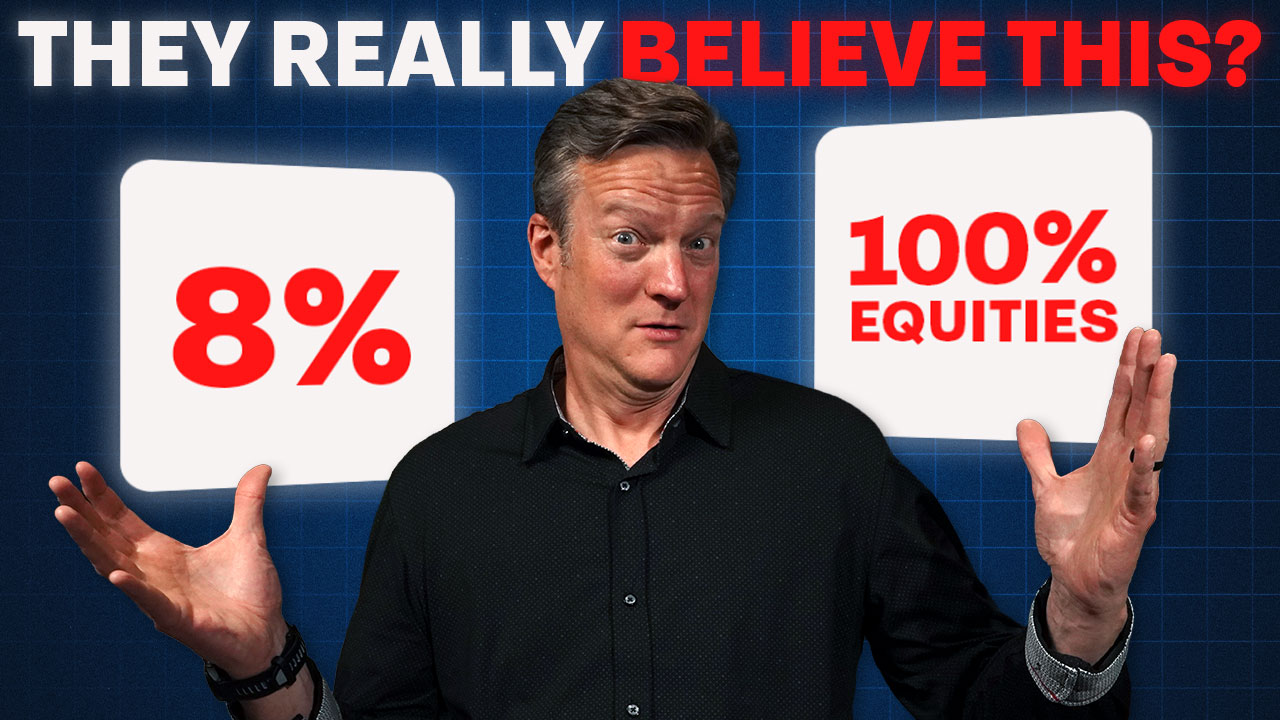Next question is from ReadyBlair1. It says, "My retirement money is 90% traditional versus Roth, so 90% traditional, 10% Roth. I feel like I invested backwards at 50 years old. Should I migrate to 100% Roth 401k or continue with traditional and simply do a Roth conversion in the years to come? So, what do you think? Did he invest backwards, and how should he move forward?"
Yeah, that's a great question, and you're not uncommon. Like a lot of folks, we get this question. This is probably one of the most asked questions that we get. "Hey, I was saving; I was doing my 401k and have all these traditional assets. But you guys talk about Roth and how it's so amazing, and I've even seen the eBook that you guys have out on that, and it's just so wonderful. How do I get more of that? How do I do more of that?" And it is true; we love Roths, and they are super valuable. But I am not a proponent advocate for Roth in lieu of everything else. Just like we have the financial order of operations when it comes to what you should do with your next dollar, we even have an order in terms of how I would think about building pre-tax versus Roth assets.
So, Blair, you said it was ReadyBlair, right? Was the name Blair ReadyBlair1, 50 years old. We don't know your tax status, right? We don't know where you are tax status. We know the composition of your assets, but not the size of the portfolio. This is what I would tell you: our general rule of thumb is if your tax bracket is below 25% when you add up your marginal federal and state, it seems reasonable to assume that your tax rate is probably pretty low now, and it'll probably be in the same sort of place when you get to retirement later on. So, if that's the case, then prioritizing Roth makes a lot of sense. Roth makes tons of sense in that scenario. But if you're someone who, your marginal rate, plus federal, plus your marginal state, is above 30%, there's a really good chance that when you get to retirement, when you're living off of your assets, when you have more control over your income, you might be in a lower tax situation. Well, if you're in a higher tax situation now and you're in a lower tax situation later, then that really suggests that pre-tax is probably going to be the optimal strategy for you. Because you led to the very next thing: "Hey, might I be able to do some Roth conversions later in life? Might I have opportunities?" Yes, just because you don't build Roth assets in your accumulation phase does not mean that building Roth assets cannot be part of your decumulation or legacy planning phase.
Yeah, I mean, that's a great setup because the two things I had written down were tax rates, legacy planning. I'll come back to that. And then the third one was conversion stage. And ReadyBlair1, you already shared you're 50 right now. Assuming you retire before you're 75, you'll have a window of opportunity. Think about, let's just take an example: somebody retires at 60 years of age. You now have 15 years before the government makes you take required minimum distributions. For somebody that age, now, for somebody who's older, you might have to do it at 72 or 73; they've staggered this out. But for a lot of us, it's going to be beyond 75 years. That creates a tremendous window because if you have the three-bucket strategy, think about the
financial order of operation step seven, where you're thinking about, "Do I have after-tax brokerage account assets? Do I have tax-deferred? And do I have Roth?" If you structure this right, you might be able to legally manipulate the tax code to where, during that period before 75 when you have to take those pre-tax money, you might be able to just play the tax rate game. You can go ahead and convert up to those lower tax rates, turn them into Roth dollars, and then off to the races you are with building the legacy of having tax-free growth.
Now, look, I do think it's one last thing. Some of you guys who are financial mutants, you've done so incredibly well that you have multiple seven figures and stuff, and you're thinking, "Man, I just don't have a lot of Roth assets, but I know that Roth would be incredible from a legacy standpoint to pass that on." And you get 10 years beyond your death for a normal distribution from retirement accounts. Some people, we have some clients that are now doing Roth just because the tax rates didn't go down in retirement because they have good income coming out even in retirement that they're now choosing Roth just from the legacy planning standpoint. These are all very important things to consider, and it's part of the graduating through the abundance cycle. If you have these types of issues and you're trying to figure out what's the optimal way to do conversions to make sure my three buckets, to even stress-test my retirement to make sure I'm landing this plane right, then I would encourage you to go check out the
"Work With Us" on both
MoneyGuy.com as well as
AboundWealth.com because this is exactly the cool type of stuff we get to do for our clients, and it makes it so fulfilling to help people walk through that threshold of financial independence.














